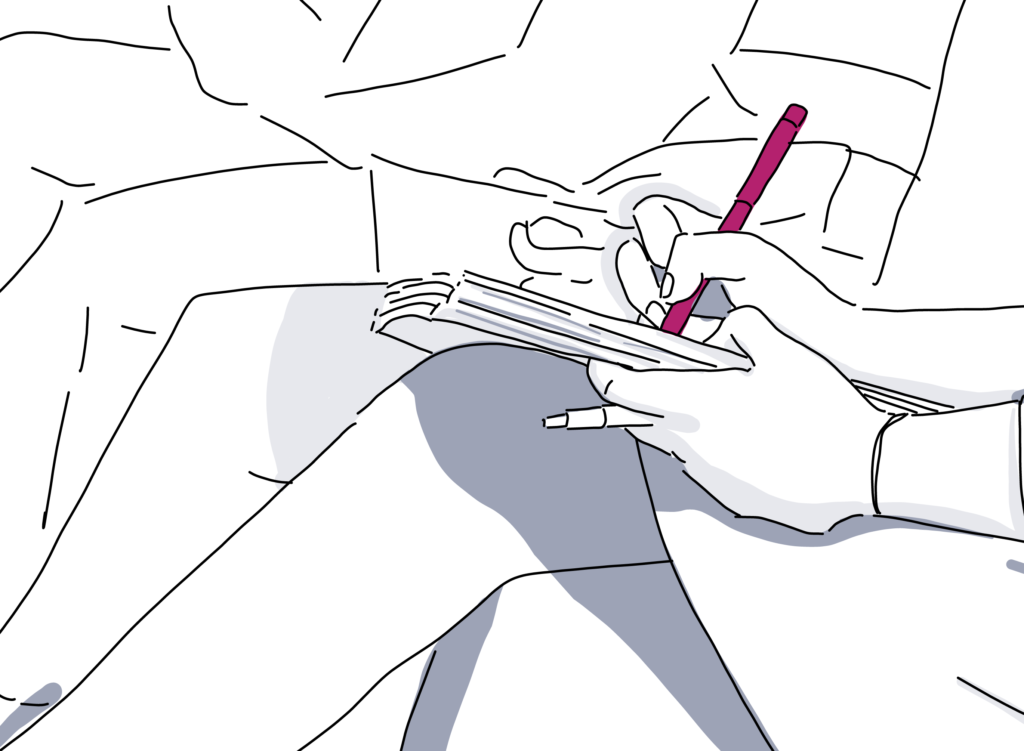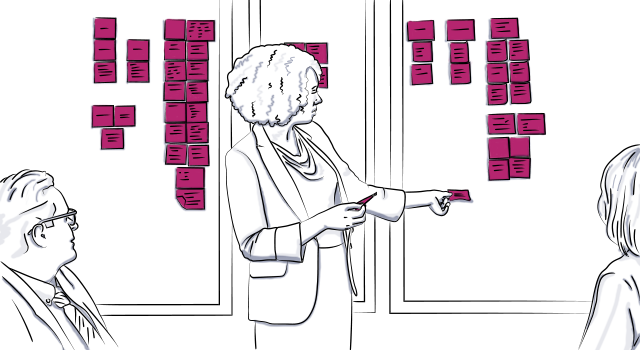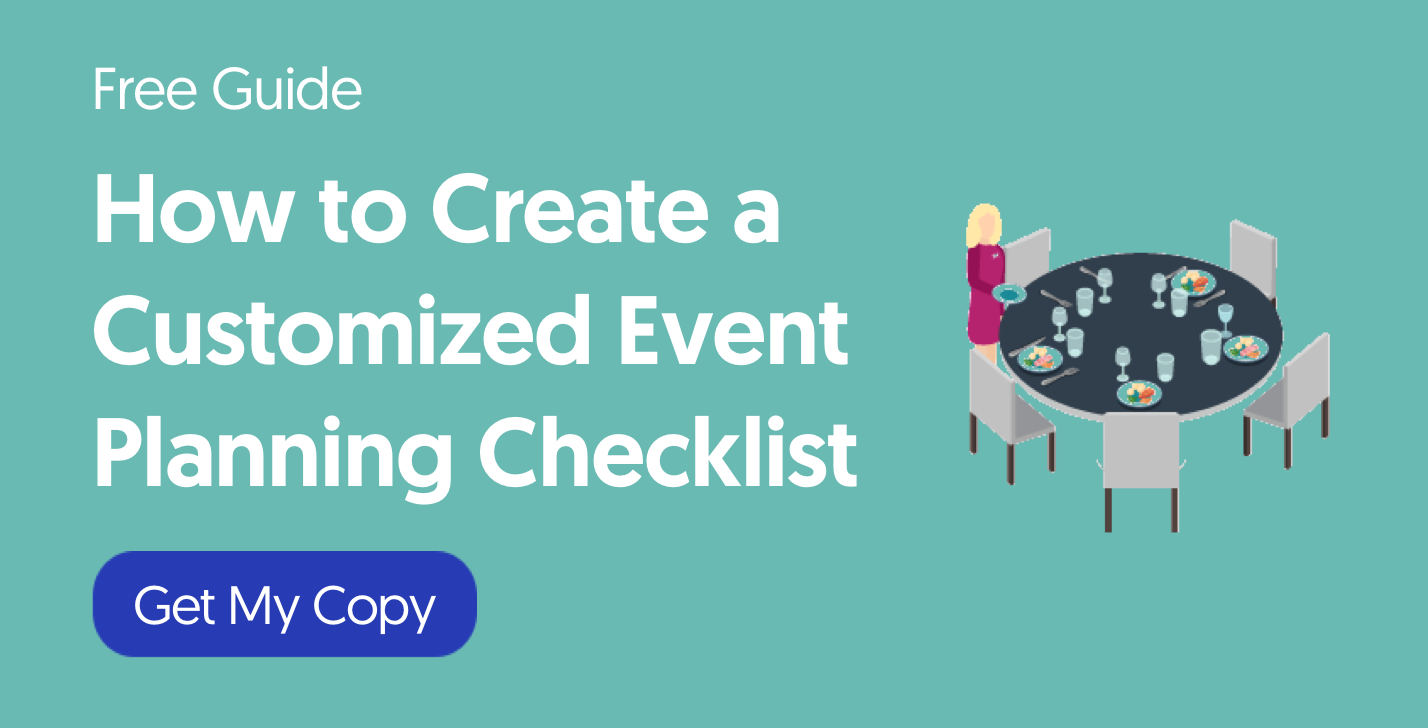
How to Hire an Event Photographer: 20 Secrets to Get the Best
Though everyone is a photographer these days with smartphones always ready to capture the moment, you’ll need to hire an event photographer for large-scale conferences and social occasions.
During an event, you and your team have your hands full with a million tasks, while a photographer’s exclusive focus is documenting the special moments that happen while you tend to the details.
The types of events that benefit from the services of a professional photographer include:
- Trade shows
- Conferences and meetings
- Galas and fundraisers
- Press conferences
- Awards ceremonies
- Landmark events (Sweet Sixteens, Quinceaneras, Bat/Bar Mitzvahs, Anniversaries, Engagements)
- Weddings
Photos from some of these events are memories to cherish for a lifetime. Others can build and boost your brand. Follow these 20 tips and tricks for hiring an event photographer so you get the shots you need.
A professional photographer captures your event better
1. Nothing beats professional quality.
Flawless photos captured on professional equipment are always better than those taken with a smartphone camera. If the images are for the event website, or your planning business website, you’ll obtain exceptional pictures that showcase the best moments”and your elite skills. If the event is a wedding, the happy couple will have high-resolution, stunning photos to remember the day forever.
2. Professional photographers know what to look for during events.
Once you provide an overview of the goal and spirit of your event, a professional photographer will understand which moments are the most important for them to capture. Provide a list of VIPs, from the Keynote to the award recipients, and rest assured you’ll secure the perfect shots.
3. Event photographers backup their work.
No need to worry about lost cameras or accidental deletion; professional event photographers understand their reputation depends on backing up their work regularly. Today, most use cloud servers so you’ll have a copy no matter what happens to the equipment.
4. Professional event photographers blend in seamlessly.
This is especially important if you prefer natural, candid shots. Professional photographers stealthily walk around the event capturing unique photo ops while everyone has a good time.
5. Event photographers elevate sharing.
If you make an event in a Facebook group, you’ll have awesome photos to upload when the event is over. This helps drum up interest for next year’s event.
Get familiar with photography styles and photographers
6. Know your event photography styles.
Many photographers hone their skills to specialize in specific photography styles. Here are the top ones every event planner should know:
- Wedding photography. You can get away with amateur photography at a wide range of events, but when it comes to weddings, professional photography is a must. A professional wedding photographer utilizes a variety of photography styles, such as portrait, landscape, and fashion, to capture the best moments of the big day.
- Candid photography. This style of photography captures life in its natural state. A candid photographer must capture images of people without distracting them from their activities.
- Conceptual photography. Have an idea that you want to get across artistically? Then a conceptual photographer is your best bet. Often used in advertising to reinforce specific associations with an event or product, the photographer uses images to convey your message.
- Photojournalism. This style of photography tells an honest story as it unfolds. The photographer remains impartial to the events around them as they document each moment. This style is a favorite for weddings.
- Portrait photography. The focus of this style is typically the face. This is a good option for company events where you want natural, closeup shots of executive and employees for the website.
- Advertising photography. Used by businesses to promote brands, products, or services, this style is on the commercial end of the photography spectrum. Consider this option for product rollouts and industry conferences.
- Fashion photography. Fashion photographers excel at capturing subjects on the move. They are a great choice for busy conferences where attendees are moving between venues, or for events like Comic-Con where many guests are showing off their cosplay.
7. Go to Google.
Start with your location and the type of photographer you need and begin your search. The top returns may be the best, or they may be subpar and have a larger marketing budget that more skilled photographers. This is why Google is always a starting point and never your exclusive source of vendors.
8. Talk to your network.
This is often the best way to ensure you get someone who’s reliable. Anyone in your network who has ever hired a photographer for an event is your go-to on this. Talk to your colleagues, industry peers, and friends for positive recommendations.
9. Talk with your venue and vendor.
Talk with the venue or vendors who have worked in the venue about photographers they’ve seen in action before. Is there someone who stands out to them for their impressive work? You might just find a hidden gem this way.
10. Check the associations.
Photography associations have large databases where you can find a range of photographers in your area. Both the Professional Photographers Association (PPA) and American Photographic Artists (APA) are excellent resources.
11. Expand your search.
You’re always reviewing events similar to yours for inspiration. If you see an event website filled with photos you love, check out the photography credits and hire them yourself.

How to hire the right professional photographer for your event
Once you’ve narrowed your search down to a few photographers, it’s time to take a closer look at their portfolios and meet them in person.
13. Review their samples.
Any good photographer has a portfolio of their work. Review past events and photoshoots they’ve captured to see if the event photography style lines up with your vision. Steer clear of those who don’t have samples of their work.
14. Read customer reviews.
At least 82 percent of people read reviews of products or services before making the decision to buy or hire, according to local consumer review surveys. It’s wise to explore reviews on Yelp, Google reviews, and Thumbtack. Look for consistent positive shout outs, and minimal negative reviews.
15. Get to know your photographer’s personality.
Choosing an event photographer whose personality doesn’t mesh well with you or your guests usually results in awkward, lackluster images. Choose someone who is unfailingly professional, communicates clearly, and puts subjects at ease”especially if the photographer will take requests or setup formal shoots.
16. Ask detailed questions during the interview.
You need to know that your event photographer is ˜the one’. The best way to discover their style and level of professionalism is to ask targeted questions during the interview. Here are the most important questions to ask:
- Can you provide a list of references? A portfolio of pictures shows you the work they do, but personal references show you how they interact with clients. This is the best way to know how your photographer works and interacts with others.
- Do you have insurance? Most professionals carry basic liability insurance. Some freelancers might not. Discuss this in advance to ensure coverage if something goes wrong.
- Have you ever photographed at this venue before? If the photographer has not, ask if they will do a site visit with you.
- Are you photographing any other events on the same day? While it’s possible for a photographer to juggle multiple commitments, it takes away from time spent on details and setup. Prepare to pay more if you require your photographer to handle only your event.
- Will you photograph my event, or will you send an associate? It’s important that the person who photographs your event is the person whose work you prefer.
- Do you have backup equipment? When something goes wrong, it’s essential that they have the right backup gear to continue the job.
- If my event lasts longer than expected, will you stay longer? Do you charge extra? Make sure all information communicated regarding time and costs are in your contract.
- How do you present the final product? There are many options, including online ordering or digital storage. Choose a photographer who makes this process as seamless as possible. It’s also helpful to ask if they’ll work with you on sizing digital images for use on websites and marketing emails.
- How many photographers will be at my event and who are they? Having a second photographer to capture different aspects of the event or meeting can add a new dimension to your final portfolio. They can cover more ground and with different personalities and capture a different feel. Prepare to pay more for this addition.
- What packages do you offer and can I customize it? Many photographers offer packages customizable with a la carté items. Discuss your goals with the photographer to create a package that best suits your needs.
- What is the cost of services for my event? Prices can vary by the photographer. Narrow down the cost upfront so you know exactly what’s included for the price your photographer charges.
17. Clarify the specialties of each photographer in your contact list. One photographer has more experience documenting conference events with simultaneous activities. Another has an incredible portfolio of product shots. Use your event planning software to upload their information with detailed notes about their strengths and weaknesses.

Must-know event photography cost breakdowns
With event photography, you will pay more for photographers with deep experience and an extensive portfolio. Here’s what you need to know, and tips for getting the best price:
18. Event photography prices can vary widely.
The average cost of an event photographer ranges from $150 to $250 per hour with a two hour minimum for basic services. A wedding photographer might charge more due to the duration of the event and the wide range of shots that they must take.
If you’re designing an event on a budget, consider using a photographer who is just starting out and needs to build their portfolio. It’s possible you’ll benefit from the creative talents of an outstanding newbie in the business.
19. Some photographers charge by the image.
Professional photography pricing can range anywhere from $75 to $300 per image. Many event photographers charge a ˜day rate’ for longer events, and some offer packages for smaller events.
20. Explore service bundle options.
Your photographer might offer additional services and savings, such as photo booths, specialized editing services, and travel fee waivers. Ask for what you need and want, and negotiate lower fees if you are engaging their full suite of services.
Ultimately, you want a professional photographer who captures the true spirit of your events”at a price point within your budget. Follow these tips and you’ll have a roster of rockstar event photographers in your vendor contact list.
Discover how event planning software makes it easy to share event space layouts with photographers. Or, see the secrets to simplifying event logistics.
Want to learn more about event photographers?
A photographer’s cost typically depends on the event size and length, the photographer’s experience, and the services being offered. A safe range would be between $50-$300 per hour for an event photographer.
Aside from the fact that hiring a photographer means you don’t need to worry about capturing photos of your event, there are several other benefits. Professional photographers have an artistic vision that enables them to craft memorable images (rather than simply snapping photos), and their equipment will often be better than anything you can provide on your own. Additionally, professional photos can serve as excellent marketing material for an event venue or event planning business.

